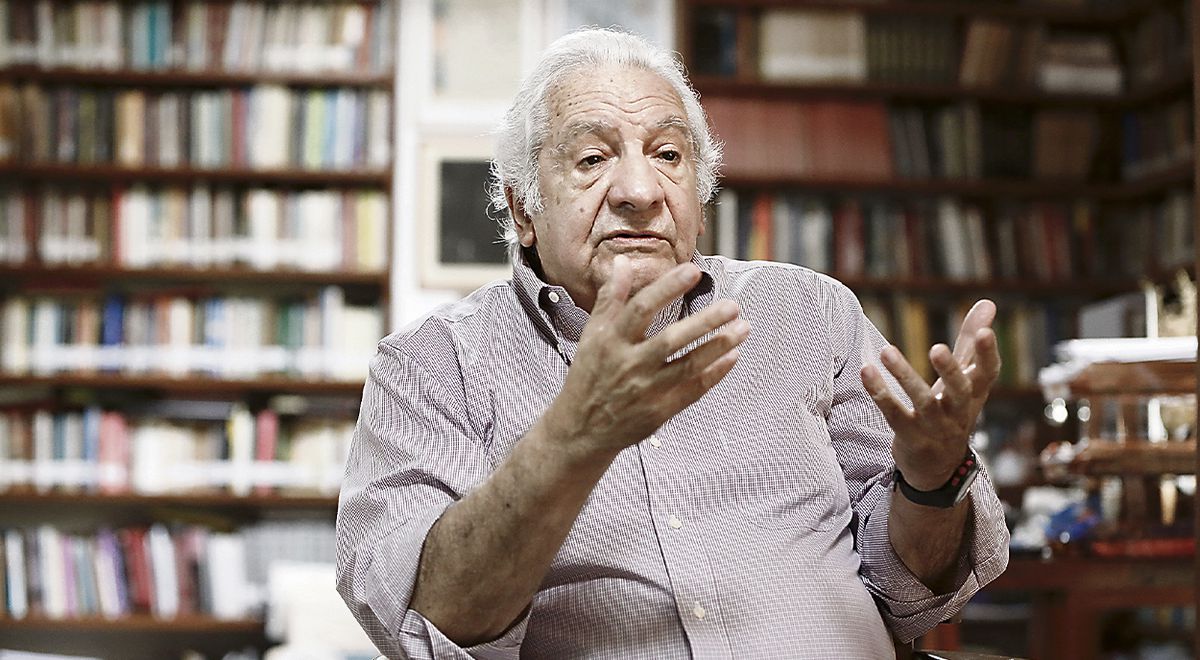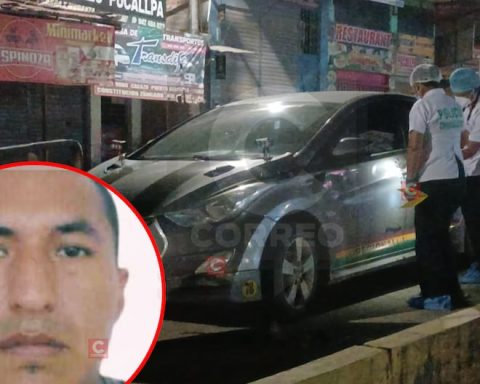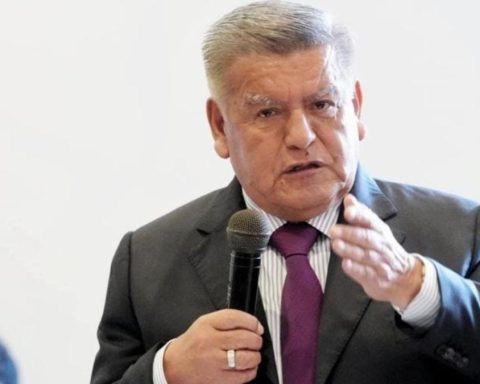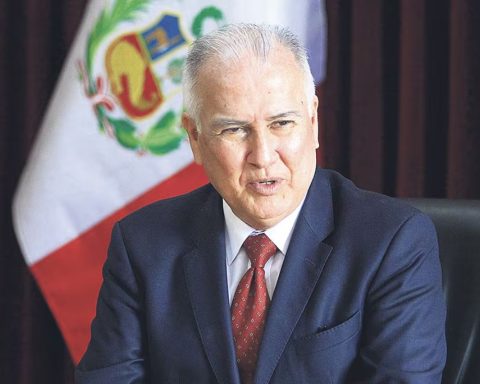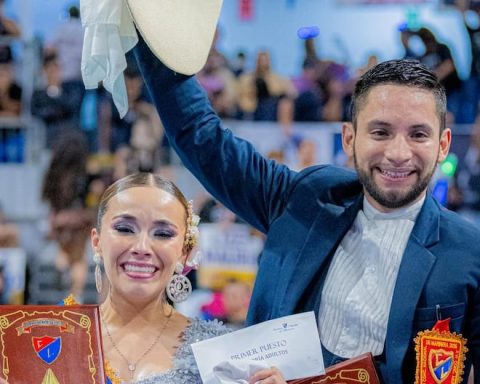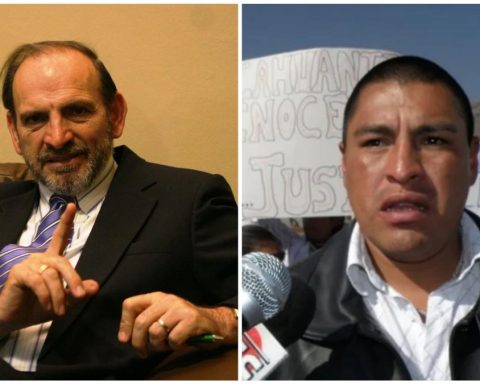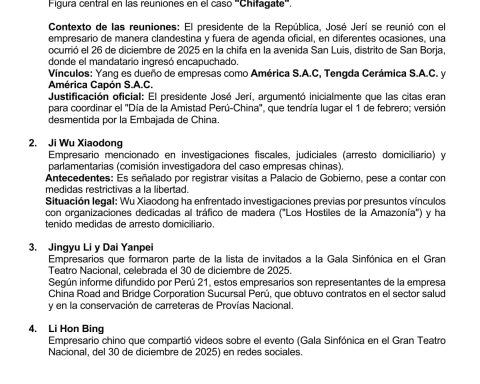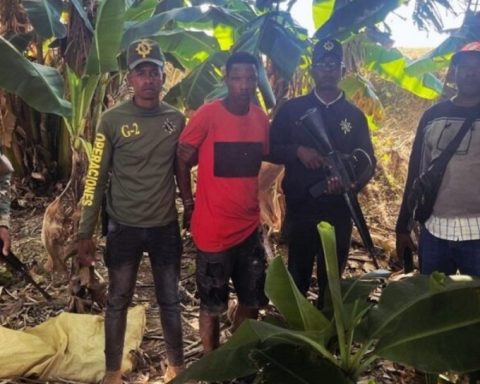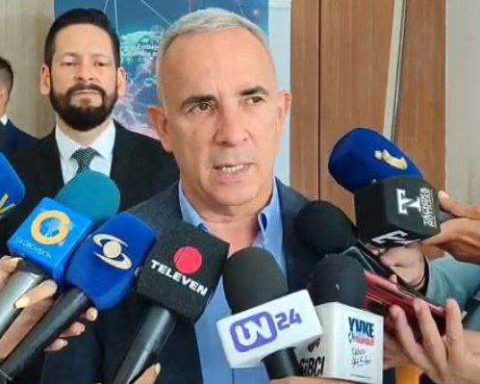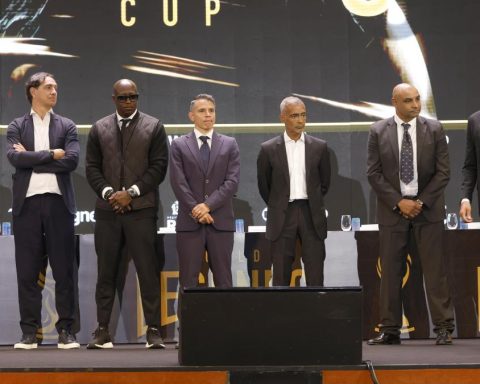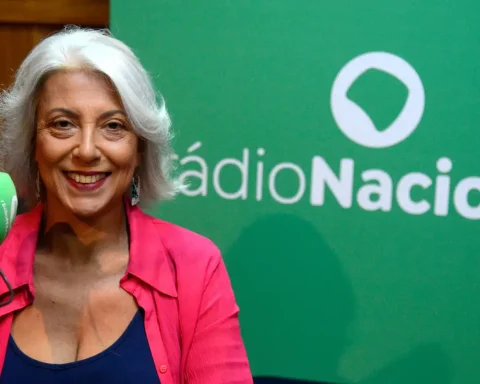The National Agreement will meet this January 10 to, in accordance with the call, seek “consensus in favor of peace”. His executive secretary, psychoanalyst Max Hernández, received La República to talk about the urgency of resuming the path of dialogue Otherwise, he warns, “the violence will continue.”
— The situation of the country overflowed. I know that the National Agreement (AN) will meet on January 10. In circumstances like the ones we are going through today, is dialogue possible?
I don’t know if it’s possible but it is necessary and imperative to do so, because if we do not start a dialogue, the violence will continue. When I speak of violence I make a distinction between the legitimate need to protest which, we have seen, is very present in many regions, and the violence that seems to take over the protest…
— Appropriate?
— Appropriate. In what sense to appropriate? For example, the headlines will be those…
— That the acts of violence stand out.
— Highlight violence. There is a moment that we are living, what the great Indian thinker Panjak Mishra calls “the age of anger”, and that is going through the entire world. This anger that is overflowing, that is not contained, can be channeled into a particular hatred. There is an issue that we must pay attention to, which is not the looting of a grocery or clothing store, which can be understood as an overflow that can be criticized, although understandable. I am referring to the seizure of an airport, or of the Prosecutor’s Office or of State institutions. One of the great themes of the dialogue is how to channel our emotions and be able to pour them into words.
— It is criticizable to seize airports and tax offices. I agree with that. That being said, hasn’t there also been a disproportionate use of violence by the state?
– Oh, but of course. What of the last days and the balance of deaths has to be definitely on the table. In a dialogue in which we seek to understand each other, are we going to put that atrocious fact as the fundamental point? I wonder if that would be a possibility that would open up a understanding. A decision must be made in this regard and I understand that we continue to live with the remnants of a violence that has not subsided in Peru. Sociologists argue that there are post-conflict societies…
— The Peruvian is one of them.
– This is one.
Scenery. We are in the midst of an exacerbated state of mind, a “very delicate situation”. Photo: Rodrigo Talavera/The Republic
— I do not want to interfere in your powers, but the question you raise is interesting, that is, whether the issue of the deaths in the protests should be a substantial part of the AN session.
– I take your word. You have said it very well. It has to be part, I don’t know if substantial.
“I should, right?” If someone wants this country to be reunited, the battered societies, the families of the victims need some explanation, some satisfaction in the face of what happened.
– I agree. I have raised it perhaps with less forcefulness and clarity than you. In the AN I have to respect consensus and within it there are voices that believe that it is in order, in this way, it was necessary. And I that…
— I understand that you have to navigate between various positions that sit at a table. It’s a bit of a juggler there…
— Sometimes with a little more risk, it’s like walking on a tightrope and I can fall on one side or the other. Look, you touched me something fundamental. I think in historical analogies. Huamanga, the city, today and that of the eighties and nineties, is like Trujillo in the thirties. After the revolution, the relationship between Trujillo society and the army was extremely difficult, full of friction, of enormous suspicion. I am not saying that all of Trujillo would have been Aprista or participated in the revolution, which a journalist who worked in his newspaper (Guillermo Thorndike) called the “year of barbarism.” Well, Huamanga is a city that lived between two fires, the abusive terrorist and the Army. For this reason, I do believe that Huamanga needed a very careful intervention.
– I agree.
— So how do we process our history? I think this is the big issue. whatWe are going to continue raising an opposition between the people and their demands and the repressive Army? The culprits of those killed by bullets fired directly at the body have to be tried. But those who say that it is necessary to seek -immediately- the political responsibility and that we must continue with the slogan that they all leave… Perhaps there is a dimension of justice that implies revenge and I can understand that. But there is another version of justice, which seeks to redirect things once they have spilled over.
— I understand the point. However, accepting that it may make sense to try to get things back on track before going back to zero again, I would tell you that one problem is that you don’t hear from the government accepting any responsibility for what happened. And another matter of substance has to do with the identification that has been made of the demonstrators with terrorism. That’s one way to override them.
— I return to what you raised at the beginning, is a dialogue possible in these circumstances? The fact of the dead that we all lament – or that we all should lament – is the key point of disagreement.
— And we must not forget that all the victims are civilians.
– Ok. There are those who argue that “they are very dead” or that they should have stayed in their homes and that, if they did not, then they must face the consequences. There is absolute insensitivity there, very widespread, not only in those sectors that believe that the important thing is to kill anyone to stop the violence. of a protest, but also in those who are looking for a dead person because, with that, everything catches fire. If we don’t learn to walk a tightrope, to tell the truths that you are saying with all clarity…
— Shouldn’t we question the decisions of a government that, although it inherited a crisis, did not manage it properly and showed a repressive face?
— All this is possible to sustain and say. What I think is the consequences of the facts, that there is an important part of our population that adds to its very long mourning for many previous things, this new mourning. And you have to process it. And, second, you have to seek to understand how the decisions were made, and if they were wrong or insensitive or whatever, to begin to identify those responsible. If what we want to suggest is that the culprit is such and such, we must think about the implications of that. I am a kind of balcony politician, I have never been involved in a party, except in my youth, unfortunately more and more distant. But what I have seen is a set of emotional and political developments in which it is at stake who is going to take the place of the one who must resign. I say that, at this time, when there is a big drama with civilian deaths, the first thing is mourning. Then find those responsible. But does that mean that only the government apologizes? whatOr those who really knew that entering airports was something that had implications of another kind? Because seizing an airport means isolating a community and transforming the demonstration from a protest into the liberation of an area. That must also be taken into account.
I do not defend that action. What I argue is that this does not justify a bullet to the body.
“Again, look. It is very interesting. I highly respect the profession of journalist, but it is totally antagonistic to mine. You have the obligation, as a good journalist, to confront my contradictions. Ok. It is your task. Propose, “hey, your argument at this time is not correct”, or “it is flimsy”, or “it is a little loosening the body”. And I will tell you that from your perspective it may be so. PBut, from mine and from the AN, the perspective is different, it is to understand what leads us to absolute antagonism. Yesterday I was reading an article by a good friend of mine, Sinesio López, who gave a reading of the process, according to which there are moments in which a particular protest acquires a certain force that reveals the structural bases of the conflict that were not visible before the outbreak . Sinesio does a skimming, yes. He talks about the congressional coup and doesn’t mention Castillo’s. I know, of course, that an unsuccessful coup is a mess. But the intention was. I would agree with what he proposes, however, I do not believe that we are at a critical moment in the revolutionary sense, as some people have believed.
Meeting. The National Agreement will meet on January 10. Photo: Sepres
– Then?
— We are in an exacerbated state of mind in which the destituent vocation continues to prevail. It has been around for a long time, but radically for six or seven years. They say the solution is a constituent assembly. I say that if we are in a destituent moment, we think about the conditions that allow a renewed institutionality. That is, let’s enter an instituting moment in which we can dialogue. To have a constituent moment we need to respect each other. I have discussed these things with friends, just like what you make me see, and we have held on to shouting. One planting a thesis, another his and me trying to maintain a balance. If it’s like that with friends… it’s a very delicate situation. Well, I thank you, because you have made me think and have put me in trouble.
“I would ask the population of Huamanga what the presence of the army meant to them”
Why do you think people protest? What do you think is what drives you to go out and demonstrate?
— People are protesting because of absolute weariness that is made up of many things.
– Which?
— For example, to see that in 200 years of independence we have not realized what Basadre called the promise of Peruvian life and in that we are all to blame, in different proportions, of course.
— I read a comment on networks that, it seemed to me, made sense: that the bicentennial, rather than a celebratory date, seemed to be an expiration date.
– Interesting. Look, I am already old and I think that in my 85 years the country has indeed progressed. To suggest that the country has not advanced is an absurd caricature. Also believing that we were heading to the first world was also a source of delusion. But that there has been progress, there has been. For example, Peru is a less racist country than it once was, even though abominable expressions continue to be used..
— What would you say we need in these difficult times?
– Some time. I don’t call it a truce, because that implies a war, and are we going to continue with the war metaphor? We need some patience, to think. We need to make an invocation to reflection. For example, I would ask the population of Huamanga what the presence of the Army meant to them. Simply that. Therefore, the project of this dialogue is to listen.
— What do you think of President Dina Boluarte?
— You have given me a breath of hope when you have spoken in Quechua, not in terms of a harangue, but in familiar, cordial, friendly terms. This is a fundamental historical fact, as was the triumph of Pedro Castillo. When certain sectors brandished the idea of fraud, it was not only a wrong strategy, it was much more serious in the background. Because if we are only going to think that this gentleman won by fraud, we are never going to reflect on the reasons that allowed in democracy his triumph, which had an extraordinary significance that, unfortunately, Castillo himself threw overboard with his way of governing. It was the possibility of understanding Peru.
